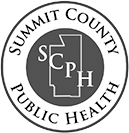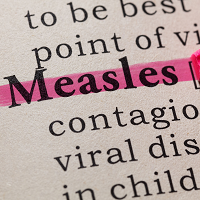News
Measles
Apr 18, 2023
What to Know About Measles
Measles is an acute, highly contagious respiratory disease caused by a virus. Most people in the United States are protected against measles through vaccination. However, unvaccinated travelers can get measles while they are in other countries and bring measles into the United States. They can spread measles to other people who are not protected against measles, which sometimes leads to outbreaks. This can occur in communities with unvaccinated people.
Signs & Symptoms
The symptoms of measles generally appear about seven to 14 days after a person is infected. Measles usually begins with a high fever, cough, runny nose (coryza), and red, watery eyes (conjunctivitis). Two or three days after symptoms begin, tiny white spots (Koplik spots) may appear inside the mouth. Three to five days after symptoms begin, a red blotchy rash appears, beginning at the hairline and spreading downward to the neck, trunk, arms, legs, and feet.
How Does it Spread?
Measles spreads to others through coughing and sneezing. Infected people can spread measles to others four days before through four days after the rash appears.
How Contagious is Measles?
The measles virus can live for up to two hours in an airspace where the infected person coughed or sneezed. Measles is so contagious that if one person has it, up to 90% of the people close to that person who are not immune will also become infected.
How Serious is Measles?
Measles can cause serious health complications, especially in children younger than 5 years of age. Complications include pneumonia (infection of the lungs), encephalitis (an acute inflammation of the brain) and even death. Measles may cause pregnant women to give birth prematurely, or have a low-birth weight baby.
Can Measles be Prevented?
Measles can be prevented with MMR vaccine. The vaccine protects against three diseases: measles, mumps, and rubella. Children are recommended to get two doses of MMR vaccine, starting with the first dose at 12 through 15 months of age, and the second dose at 4 through 6 years of age. Teens and adults are considered up to date on their MMR vaccination if they’ve had the two doses. Contact our clinic to schedule an MMR vaccine 330-375-2772.
Links for More Information
Top 4 Things Parents Need to Know
Educational Materials: Multiple Languages




